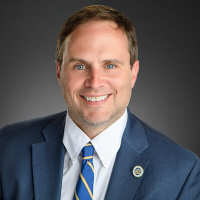Mathews DUI-DWI Lawyer, Louisiana
Sponsored Law Firm
-
 x
x

Click For More Info:
-
Babcock Trial Lawyers
10101 Siegen Ln #3-C Baton Rouge, LA 70810» view mapCriminal Defense We Want Your Injury Claim PAID NOW!
At Babcock Trial Lawyers, we work for our clients, maintaining our reputation of excellence as criminal defense & personal injury lawyers in Baton Rouge.
225-500-5000
Tanner D Magee
✓ VERIFIEDCriminal, DUI-DWI, Accident & Injury
Tanner Magee was born in Houma, Louisiana. After graduating from Vandebilt Catholic High School, he attended Louisiana State University where he earne... (more)
Nicholas Lindner
✓ VERIFIEDCriminal, Car Accident, Felony, Accident & Injury, DUI-DWI
Full service criminal defense/personal injury/DWI/traffic firm
I am a New Orleans attorney fighting hard to protect my clients' rights, property, and liberty through experience, skill, and knowledge of the Louisia... (more)
Joan Marie Malbrough
Litigation, Social Security, DUI-DWI, Bankruptcy
Status: In Good Standing Licensed: 32 Years
George Peter Vourvoulias
Workers' Compensation, DUI-DWI, Personal Injury, Car Accident
Status: In Good Standing
FREE CONSULTATION
CONTACTAudrey Erin Reed
Criminal, Family Law, DUI-DWI, Living Wills
Status: In Good Standing Licensed: 13 Years
Stephen D. Hebert
Criminal, Felony, Misdemeanor, DUI-DWI, White Collar Crime
Status: In Good Standing
FREE CONSULTATION
CONTACTCynthia M. Ceballos
Deportation, Divorce, DUI-DWI, Criminal
Status: In Good Standing Licensed: 24 Years
Ann R Baehr
Estate, Divorce & Family Law, DUI-DWI, Criminal
Status: In Good Standing Licensed: 34 Years
Joseph Ciro Larre
Workers' Compensation, DUI-DWI, Criminal, Household Mold
Status: In Good Standing Licensed: 21 Years
Dashawn Paul Hayes
DUI-DWI, Medical Malpractice, Divorce & Family Law, Criminal, Accident & Injury
Status: In Good Standing
 Stephen Babcock Baton Rouge, LA
Stephen Babcock Baton Rouge, LA Practice AreasExpertise
Practice AreasExpertise


